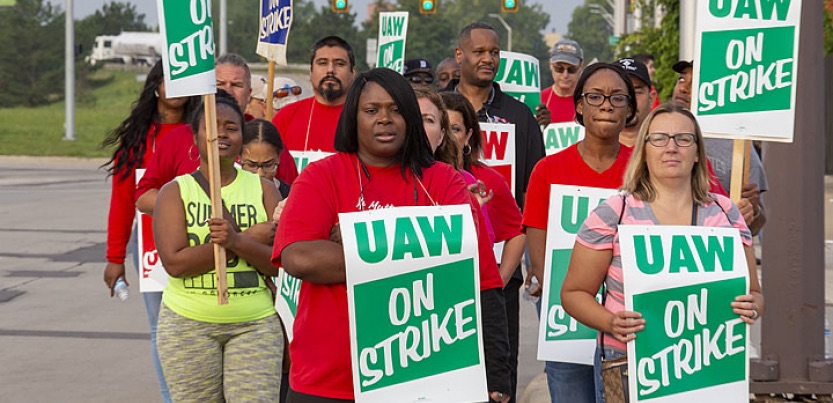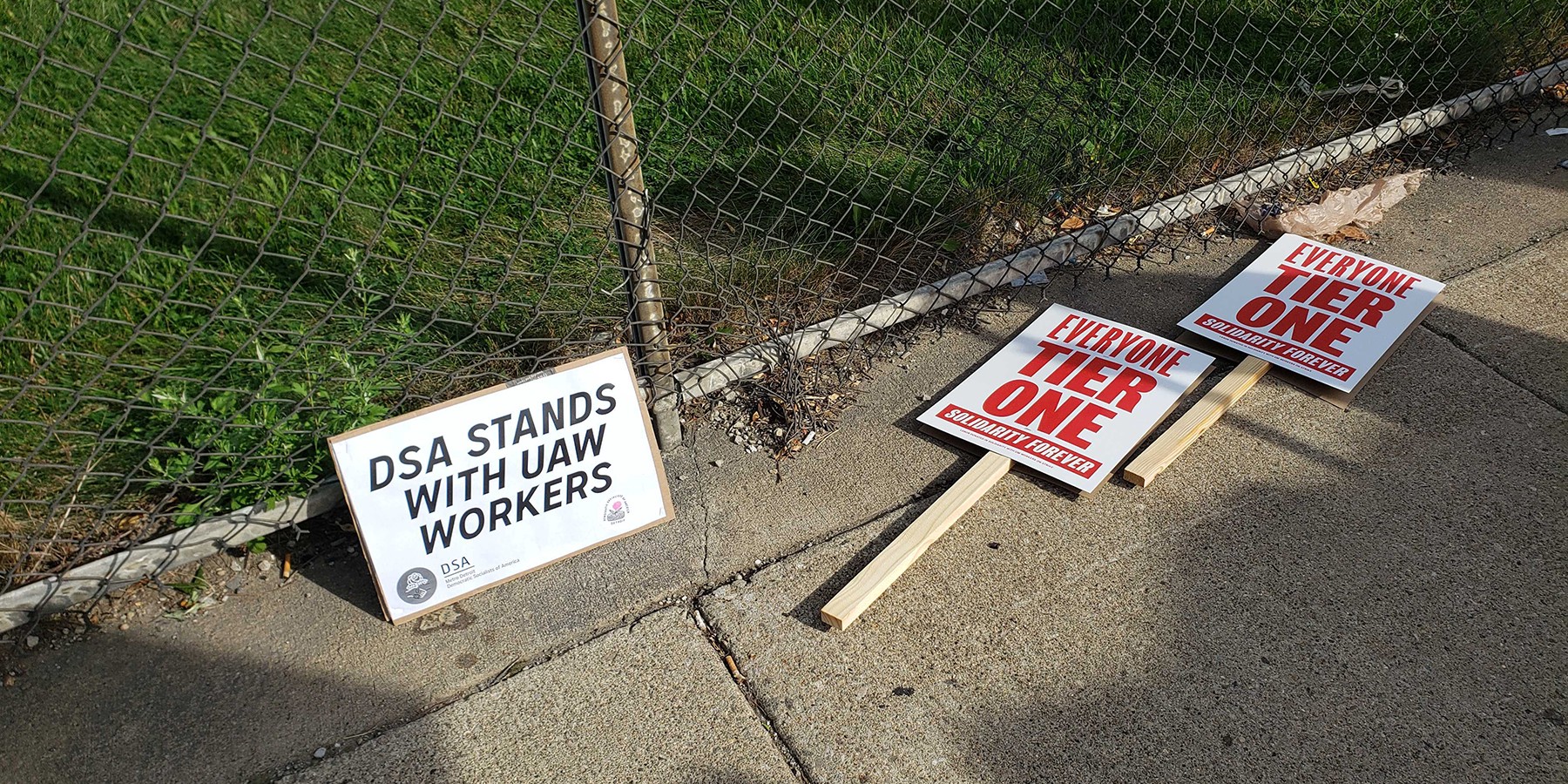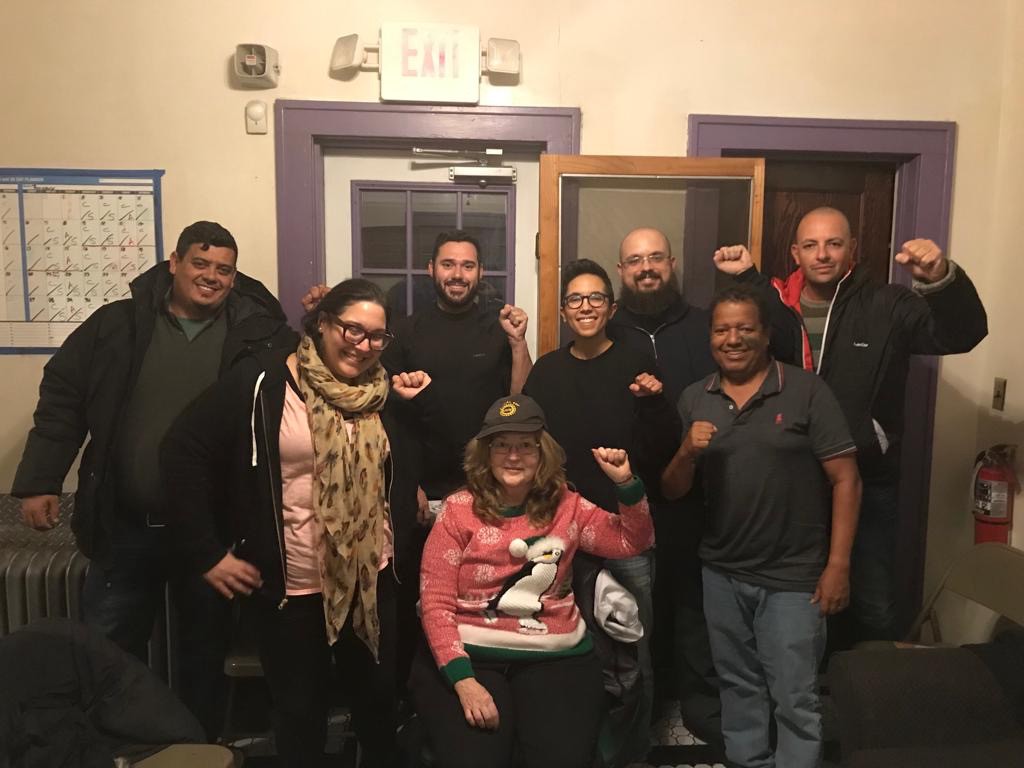Ron Lare
Posted October 23, 2020

“The corruption isn’t bags full of cash. It’s the appointed positions that should be elected, the union-management partnership, the nepotism learned from the companies, and the turn from international solidarity to protectionism.”
That’s long been my answer to workers who say the UAW’s problem is bags of company cash under the table.
I still give that answer. But then came a garage full of cash, at UAW President Gary Jones’ home.
Activists like me have stood for the reforms necessary for union democracy and militancy. But we have defended the UAW against members who want to chuck the union out when grievances are answered with “Management has the right” and “Just be glad you got a job.”
I was an observer at the 2019 UAW Constitutional Convention. When Gary Jones accepted the UAW presidential nomination, he said he must “first thank my Savior.” I was unhappy with this sectarian preamble to his presidency. But I did not yet realize how crudely UAW traditions had been abandoned at the top. Then came the baubles and bank account revelations that for socialists with deeper questions I will not detail further in a short article.
Selling out the next generation
Here’s how I assess the bigger problems behind piles of cash.
Most UAW reps do a useful, sometimes excellent daily job defending members. But contract concessions threaten the existence of the union. The UAW agreed to cut auto worker new-hire pay in half. Yes, there is now some wage growth over years. But that pales before elimination of new-hire pensions and retiree health care (they can’t afford to feed their small 401Ks). Some of the pressure for concessions like this came with the Obama Administration’s response to the 2008 financial crisis. Evidence of this came in the UAW bureaucracy’s “Highlights” designed to convince Chrysler workers to vote Yes on one concessions contract. The “Highlights” pleaded that the government required the concessions. That a Democratic administration mandated this was enough excuse to tell workers to fall in line. Thus the bureaucracy followed the Democrats’ neoliberalism or free- market globalization. It is partly this race-to-the-bottom liberalism, not just racist influence, that convinces many of my fellow white auto workers to turn from voting for Obama to falling for Trump.
Today’s struggles and reform movements
The 2019 GM strike showed auto workers’ power and community support. Most early picket-line interviews quoted workers demanding full-time jobs and equality for the “temps” at the bottom of several tiers of pay, benefits, and seniority rights. Detroit DSA played a good picket line role supporting such demands with our “Everyone Tier One” signs.

Auto workers can get more community support by adding strike demands such as more community hiring for greener jobs. There was a time when the UAW stood for “30 for 40” — thirty hours work for forty hours pay, to create more jobs.
The reform movements
In the 1980s, the public became aware of reform movements in the UAW. Victor Reuther, Walter Reuther’s brother, other officials, and rank and filers built the New Directions Movement against Solidarity House’s new concessions to management.
Today reformers include Auto Worker Caravan, founded in 2008 to fight effects of the financial and environmental crises. AWC, along with auto workers here from Brazil and Canada, collaborated with Detroit community organizations and a large DSA contingent in a demonstration against plant closings and for the environment outside the 2019 Auto Show Charity Ball at Cobo Hall.

DSA and GM-Brazilians in town for Cobo Hall protest
The AWC website, autoworkercaravan.net, features petitions for Covid safety in workplaces — one has over 7000 signatures — and a press release written by African-American workers in the Lima, Ohio Ford Engine Plant. Black workers there were inspired by the Black Lives Matter movement to hold their own BLM rally outside their very conservative plant. Under such pressure, National Ford HQ replaced some HR reps associated with racist practices.
Another reform group, Unite All Workers for Democracy, held its founding Convention this year on September 19. UAWD has filed UAW Constitutional charges against top UAW leaders, campaigned nationally for direct elections to the International Executive Board (one member-one vote, instead of the current system of election by convention delegates), and spotlighted international workers’ struggles. Locals representing tens of thousands of UAW members had signed onto the process to change the constitution for direct elections when a self -imposed deadline required a re-start.
UAWD and AWC work well together. We both continue to win some local elections in a bottom-up effort to win UAW power and reforms.
One of the bright spots among AWC and UAWD reformers are the left-leaning, rebellious academic-worker locals representing some tens of thousands of members in universities. Another positive element is international participants and supporters, especially from Brazil, Canada and Mexico.
Most union reformers support political candidates but those candidates don’t support rank and filers in replacing the union bureaucracy.
The goals suggested in this article cannot be won through internal union developments alone. Identifying labor with capital, the left with liberalism, and solidarity with nationalism are bigger problems than the internal union leaderships.
The prosecution of corrupt UAW leaders may lead to a government takeover of the union. Some reformers hope that will require direct elections of top officers. But neither major presidential candidate is likely to have his prosecutors continue that process after the election. Trump would turn it toward the destruction of the union itself. Biden wouldn’t act against the UAW leaders who are helping elect him.
We UAW reformers have to win power local by local, from the bottom up. But we need political power too. We can’t fully expose Trump in the eyes of UAW members unless there are also political leaders who support reform forces against the bureaucracy. Don’t expect that from the major parties.
Regardless of politicians, can unions be reformed in part by truly progressive movements outside the unions? Yes. The most democratizing force in US union history came not as much up from the shop floor as in from the streets. That force was the Black freedom movement that established the effective right of Black workers, first to belong to unions, and then to hold union office, and for workers of color to enjoy some rough equality with white co-workers. Similar and joint struggles were necessary by and for sectors of immigrant workers. The women’s movement inspired shop floor feminist resistance to abuses (breathtaking Ford and UAW example).
These experiences show that a democratic revolution inside the unions can be promoted by one from the outside as well.
This article is my opinion only, drawing on UAW reform work that I do with many others.
This article appeared on the Detroit DSA website on October 8, 2020 here.

Comments
One response to “UAW Corruption: Whose Job is Cleaning House?”